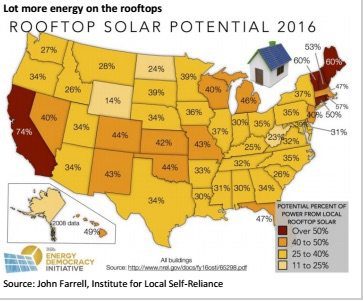Speculation about the future of transportation, like common flu, appears to becontagious. Not a week goes by without another celebrity, business guru or executive predicting that future of transportation is electric.
That, you may say, is probable and not newsworthy. What is newsworthy is that many of the same people are predicting that the transition is likely to be at a pace much faster than many had expected.

In July 2016, for example, Virgin Group founder Richard Branson was quoted as saying that he suspected that 15 years from now every car on the road would be electric. Chances are that he made up the number – 15 years – without giving it much thought. One can also assume that he was talking about new cars sold in 15 years, not all cars on the road.
That, of course, is what makes Branson Branson. He was talking to CNN at a Formula E race, which he was attending to support the Virgin Racing team. He said, “Formula E is pushing the boundaries forward into what will be the future.
Fifteen years from now, I suspect every car on the road will be electric.” He went on to elaborate: “If governments set the ground rules — and they sometimes have to be brave and set positive ground rules — and for instance said, ‘more than 50% of cars must be battery-driven in 10 years and 100% in 15 years,’ we could make that happen.
It will be great fun and really challenging to do. The cars would be much more efficient… and battery technology will get better and better.” But even if governments were brave – or foolish depending on your point of view – and set ambitious targets for electric vehicles (EVs), it would take a while for EVs to make a dent in the overall numbers.
Currently, roughly 1 million EVs represent a mere 0.1% of the total number of passenger cars in the world. Oil majors need not panic yet. Nor can they afford to be complacent. That, however, does not prevent people from making bold projections. A report released by Lux Research in July 2016 (graph below) says 30% of the world’s – we assume new vehicles sold – will be EVs by 2030, powered by renewable energy.

Writing in the Dealing with threats to the transportation fuel oil industry, lead author Brent Giles said, “Oil’s dominant position in transportation fuels has proved impregnable for more than a century, but real threats abound now,” adding “Transportation fuels, which account for some 80% of global crude oil demand, is the lifeblood of the industry. As an extremely dense but affordable energy source, oil powers 1.2 billion vehicles globally that use 800 billion gallons of fuel per year.”
Not the sort of message oil company executives like to hear or talk about. Tony Seba, a Silicon Valley guru on emerging technologies is equally certain about the rapid disruption about to hit the $12 Trillion energy and transportation sectors. He claims the disruption is happening as we speak, yet dismissed by many insiders in both the oil and auto industry.
Seba says the tipping point may come as early as 2020 when new EVs will be cheaper than comparable internal combustion engine (ICE) cars. By 2025, he says all new cars will be electric and not just in Silicon Valley, or California, or the US but globally.
Pointing to Elon Musk’s recent announcements, Seba believes Tesla is already on its way to deliver affordable EVs with decent range and superior More EVs and running on renewable energy by 2030 5 September 2016 EEnergy Informer Page 5 performance, to be charged with solar energy from customers’ rooftops.
Musk spelled out his vision of the future of Tesla and it is decidedly disruptive. Describing his master plan for merging Tesla and SolarCity – reported in Aug 2016 issue of this newsletter – he seems intent to dominate the autonomous vehicle and car-sharing business. In a blog post, Musk described his business plan as follows:
“Create stunning solar roofs with seamlessly integrated battery storage; Expand the electric vehicle product line to address all major segments; Develop a self-driving capability that is 10X safer than manual via massive fleet learning; Enable your car to make money for you when you aren’t using it.”
“The point of all this was, and remains, accelerating the advent of sustainable energy, so that we can imagine far into the future and life is still good. That’s what “sustainable” means. It’s not some silly, hippy thing – it matters for everyone.”
“By definition, we must at some point achieve a sustainable energy economy or we will run out of fossil fuels to burn and civilization will collapse. Given that we must get off fossil fuels anyway and that virtually all scientists agree that dramatically increasing atmospheric and oceanic carbon levels is insane, the faster we achieve sustainability, the better.”
That is how people in Silicon Valley think and talk. Many fail, but few succeed and become the next Google, Facebook or Uber. His car sharing plan is indeed Uberish. Just add Teslas on autopilot. Who needs drivers. Since Tesla owners are not necessarily the kind that need extra income – thank you – by sharing their cars when not in use, “Tesla will operate its own fleet, ensuring you can always hail a ride from us no matter where you are.”
 If Musk has his way, anyone can hail a Tesla from “pretty much anywhere. Once it picks you up, you will be able to sleep, read or do anything else on route to your destination.”
If Musk has his way, anyone can hail a Tesla from “pretty much anywhere. Once it picks you up, you will be able to sleep, read or do anything else on route to your destination.”
And he is not going to stop with passenger cars. Musk plans to expand to heavy-duty trucks and public transport vehicles.
When it comes to charging all these EVs, Musk plans to “create a smoothly integrated and beautiful solar-roof-withbattery product that just works, empowering the individual as their own utility, and then scale that throughout the world.”
Whether Tesla can deliver any or all of this, of course, remains to be seen. Every automaker in the world is now working on self-driving EVs, hence Tesla is likely to face stiff competition from many directions.
As for Musk’s vision of charging the EVs with rooftop solar panels augmented with batteries in the garage, Tesla will face competition from others, including the utility companies who see electric Lot more energy on the rooftops Source: John Farrell, Institute for Local Self-Reliance 6 September 2016 EEnergy Informer Page 6 transportation as one of few bright spots in their otherwise gloomy future.
In July 2016, the US Department of Energy (DOE) announced $4.5 billion in loan guarantees to support commercial-scale development of an EV charging station infrastructure.

The Obama administration intends to develop a national network of fast EV charging stations by 2020 – a highly ambitious deadline – to accelerate faster adoption of zero emissions travel coast to coast.
While many such projections and plans may prove overly ambitious and/or fantastic, all indications are that the century long dominance of oil over transportation is going to be challenged.
Whether the EVs will be charged from rooftop panels – as Tesla/SolarCity would like it – or from a network of charging stations – as DOE and utilities would like it – it is only a matter of time.
This, plus the looming reality of a carbon price does not bode well for oil companies that do not have a plan B, nor particularly keen to develop one.
Source: EEnergy Informa. Reproduced with permission.







